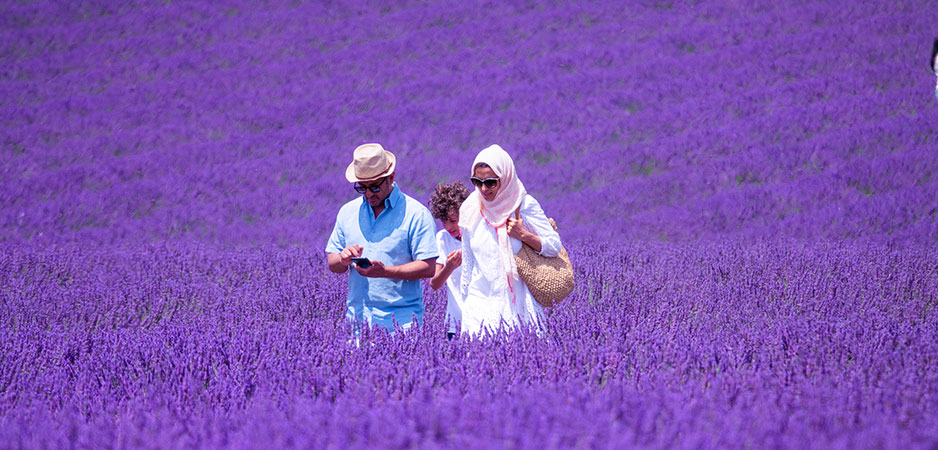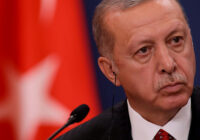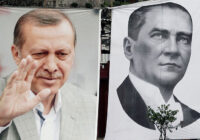On October 29, the French Ministry of Interior sent out a message on social media warning of “Violent radicalization, Islamism … If you have any doubts about someone you know, contact the toll-free number.” The situation in France has exploded into what is now increasingly reminiscent of 1930s Germany when Hitler sought informants on Jews.
Muslims Will Not Kill God for Marianne
Samuel Paty, a schoolteacher who showed his students the derogatory cartoons of Prophet Muhammad that inspired the 2015 attack on the offices of the satirical magazine Charlie Hebdo in Paris, was killed by an 18-year-old Chechen refugee, Abdoullakh Anzorov. When French President Emmanuel Macron defended the display of the cartoons, which are considered by Muslims to be extremely offensive, as a matter of freedom of expression, the ongoing tension between the French state and its roughly 6 million-strong Muslim population (or 10%) is, in fact, a manifestation of a much deeper crisis, heralding what seems to be a growing trend across Western civilization.
French Islam
For France, the issue has its roots in the country’s domestic and international politics. The concept of radical assimilation has been a part of France’s governance tradition since its colonial reign. In the 19th and 20th centuries, in Francophone Africa, the natives were considered “French” and “civilized” as long as they rejected their own cultures in favor of that of the colonial power.
The same mentality applies to the immigrants who have moved to France from former African colonies, particularly Algeria, Tunisia, and those countries across West Africa. This strict interpretation of the assimilation policy is further reinforced at home by the rigorous redefinition of French secularism, or laïcité, whereby the visibility of religion, particularly Islam, is suppressed in the public sphere, and the responsibility of immigrants, and Muslims in particular, is to demonstrate their attachment to French values and culture.
The suppression of religion in the public sphere has created enormous friction between the secular state and Muslims, whose faith requires observance around the clock. For example, the arrest of Muslims who have had to pray in the streets due to lack of mosques has become commonplace. In a striking display of French secularism, a Muslim woman was forced on a beach in Cannes in 2016 by police to remove her Islamic burkini and given a citation for “wearing an outfit that disrespects good morals and secularism.” France’s aggressive attempt to create nationwide equality has naturally led to repression of diversity, forcing Muslims to retreat to ghettoized suburbs. This in turn created discrimination and a fear of social rejection among France’s rapidly growing Muslim population.
This brings us to how Islam is viewed in France. Much as across Europe, Islam is the fastest-growing faith in France. French Muslims are much younger and have considerably more children than other French nationals. Correspondingly, Christianity in France is in free fall. According to the survey by St. Mary’s University, London, only 25% of the French between the ages of 16 and 29 identify as Christian. What is even more concerning for the French state is that the number of people converting to Islam is on the rise as well. Out of France’s 6 million Muslims, 200,000 are estimated to be converts, among whom are celebrity figures such as the rapper Diam’s and footballer Franck Ribery. Conversion to Islam is particularly prevalent among women, which has created a body of research examining this trend.
The increasing demographic disparity between Islam and Christianity, coupled with an increasing refugee influx from Muslim countries, has given rise to the notion that within two generations, Muslims are going to be the majority in Europe. Naturally, this argument has been used by right-wing politicians across Europe. France is no exception. Marie Le Pen, the leader of the far-right National Rally, has skillfully used this argument throughout her political career. In the first round of the 2017 French presidential elections, Le Pen garnered a sizable 21.3% of the vote against Emmanuel Macron’s 24%, only to lose in the run-off election. The 2017 election clearly showed that right-wing politics are on the rise in France and elsewhere in Europe.
Macron’s harsh stance toward French Muslims should also be seen from this angle. In the 2022 French presidential race, Macron is expected to seek a second term against Le Pen, his most likely contender. To the president’s dismay, the current polls suggest that at 26%, Le Pen has an edge over his 25%. This being the case, the incumbent Macron is clearly courting the far-right constituency by adopting Islamophobic policies that would be expected from a Le Pen presidency.
More Problems
The current atmosphere is highly conducive for a further rise of the far right across Europe. Adolf Hitler’s rise to power was facilitated by the Great Depression of 1929 and its devastating impact on Germany. Likewise, the 2008 global financial crisis jolted the West so much that we have been witnessing the demise of the center-left and the gradual rise of the radical right in Poland, Hungary, France, Germany, Italy, Britain and the United States.
Macron’s current effort to elevate Islam as France’s biggest problem should also be seen as an attempt to distract the public from his failures at home and abroad. The rapidly deteriorating economy, austerity measures, heavy taxation and the proposed pension reform have inspired the yellow vests movement that has been staging violent demonstrations against the government since 2018. Abroad, France appears to be bogged down in its never-ending wars in former African colonies as French casualties pile up. In Libya, Macron has failed to secure warlord Khalifa Haftar’s rule. In the East Mediterranean, France has failed to secure the interests of Greece, an ally.
There is one country that France has had to unsuccessfully counter in the above-mentioned regions: Turkey. It is for this reason that Macron has consistently perceived Turkey’s President Recep Tayyip Erdogan as his archrival and increased his anti-Turkey rhetoric. Furthermore, Erdogan, at the moment the most outspoken critic of the Charlie Hebdo cartoons, is the only world leader who can influence Muslims in France, and Macron knows it. Erdogan’s call on Muslims for a worldwide boycott of French products prompted the French government’s plea to the Muslim world to denounce the boycott. While the economic effect of the boycott is not known yet, Macron seems to be softening his tone on the cartoon issue.
France’s unsuccessful assimilation policies, rapidly deteriorating economy, failed foreign policy alongside the ensuing rise of the far right have all contributed to the current demonization of Muslims in the country. As Western values such as democracy, human rights and equality are losing relevance, there is little hope that this trend will change any time soon.
The views expressed in this article are the author’s own and do not necessarily reflect Fair Observer’s editorial policy.
Support Fair Observer
We rely on your support for our independence, diversity and quality.
For more than 10 years, Fair Observer has been free, fair and independent. No billionaire owns us, no advertisers control us. We are a reader-supported nonprofit. Unlike many other publications, we keep our content free for readers regardless of where they live or whether they can afford to pay. We have no paywalls and no ads.
In the post-truth era of fake news, echo chambers and filter bubbles, we publish a plurality of perspectives from around the world. Anyone can publish with us, but everyone goes through a rigorous editorial process. So, you get fact-checked, well-reasoned content instead of noise.
We publish 2,500+ voices from 90+ countries. We also conduct education and training programs
on subjects ranging from digital media and journalism to writing and critical thinking. This
doesn’t come cheap. Servers, editors, trainers and web developers cost
money.
Please consider supporting us on a regular basis as a recurring donor or a
sustaining member.
Will you support FO’s journalism?
We rely on your support for our independence, diversity and quality.






